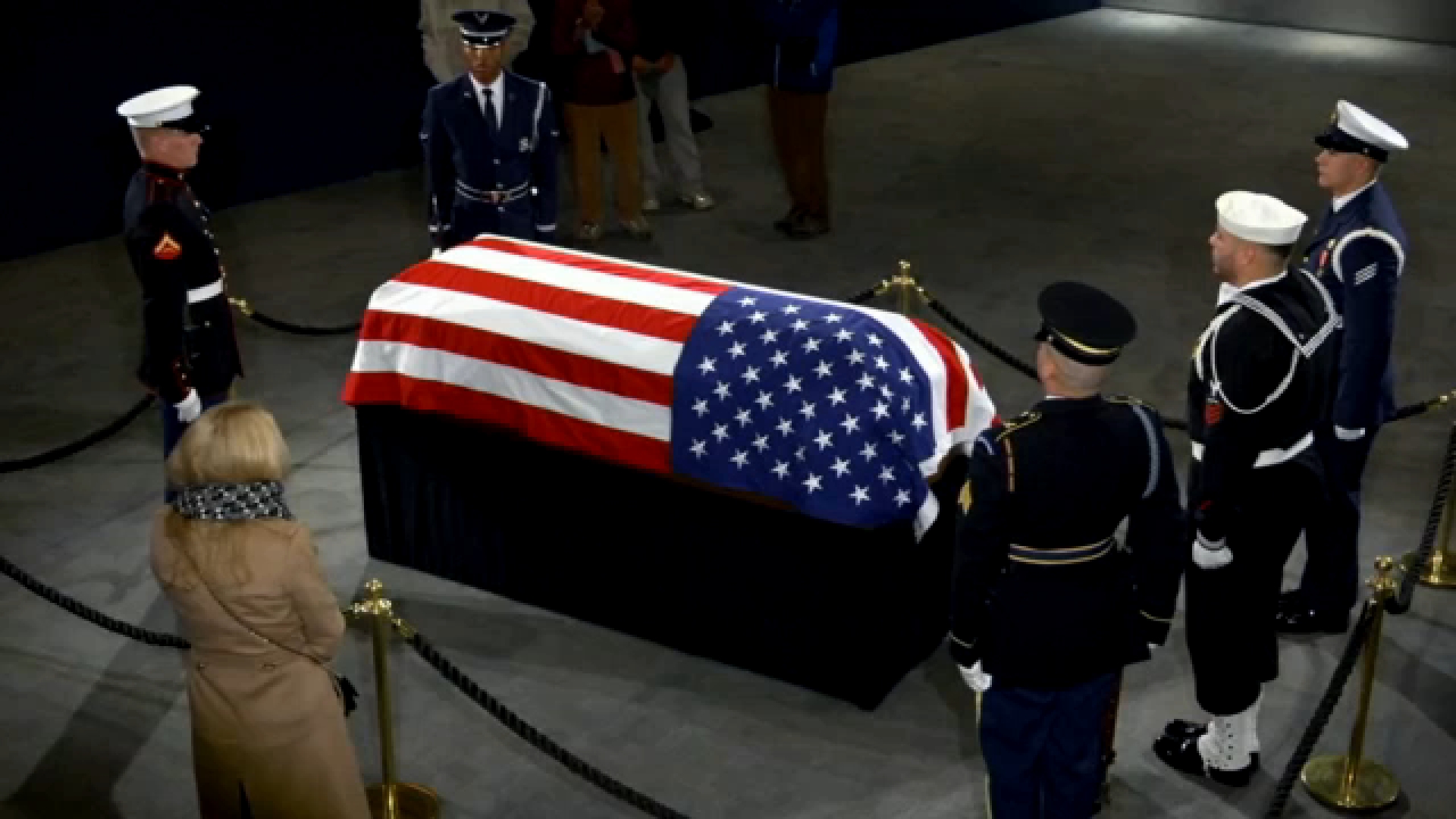Trump and Obama Display Unity in their Shared Past Office Experiences at Carter’s Funeral
State funerals in America have traditionally served as a platform not only to honor the country’s esteemed leaders but also as a stage where the nation’s political heavyweights come together. The recent state funeral of Jimmy Carter followed this testament. An impressive assembly of living presidents—Bill Clinton, George W. Bush, Barack Obama, Donald Trump, and the incumbent, Joe Biden—graced the solemn occasion. Their presence, along with some of their spouses, was a testament to Carter’s influence and they sat together to listen to the various tributes paid to the late president.
A notable highlight of the occasion was the positioning of the attendees, particularly of Obama and Trump, who found themselves as seatmates. While some may have perceived potential discomfort, given their past interactions, the setting seemed surprisingly convivial. This amicable atmosphere contradicted the anticipation and highlighted the human side of these two influential figures.
Rather than a tense standoff, their interaction can be better described as a friendly banter that one might see between old acquaintances reconnecting after a long time. It would be imprudent to dwell excessively on the nature of the interaction between these two personalities. However, there are a few theories worth mentioning that could shed some light on this cordiality.
One could argue that the most probable theory was an upbeat exchange mixed with jovial banter. Being president is a lonely challenge that few understand, hence an empathetic bond might be naturally forged between those who have held the office. Both Obama and Trump, known for their charisma in one-on-one settings, likely found common ground in their shared experiences.
Trump’s lack of affinity towards Biden is no secret. However, the relationship between Obama and his former Vice President Biden is notably multifaceted too. This connection, deepened by Obama’s past urging of Biden to step down from the presidential race, might have provided a nuanced conversation topic between the two former presidents.
With the chilly weather conditions in Washington D.C. at the time, tentatively, this perennial topic of small talk could have acted as a fail-safe ice breaker. This classic conversation starter could have been enough to momentarily halt the adversarial nature of their relationship.
One should not discard the slim possibility of a subtle, underlying battle of wit and assertiveness between Obama and Trump, hidden behind their exemplary maintaining of public decorum. This theory, although unlikely, adds another intriguing interpretation of the interaction.
Whether Obama and Trump were engaging in a friendly chat or a veiled contestation, their attendance and interaction at the funeral was a testament to the power and prestige inherent in American democracy. It is a reminder of the real and symbolic change of guard that happens in this highest public office.
Although history has recorded numerous sundry and often divisive episodes between Obama and Trump, both are cognizant of the essential values that make the American democracy what it is. This convivial atmosphere, even if punctuated by inherent political contrasts, signifies the resilience and elasticity of American political norms.
Despite multiple allegations and accusations that flew back and forth in the past, the evidence suggests that Obama has been consistent in his commitment to the American democratic enterprise. While not diminishing the critical issues in the past, it is worth noting that the contentious history adds an interesting backdrop to their seemingly harmonious interaction at the funeral.
As the attendees paid their respects to Carter, on a broader note, they were also exemplifying the strengths of American democratic values. Disputes, disagreements, and differing perspectives form a part of political interactions, yet, when required, the ability to converge on mutual respect and shared values shines through.
State functions like these remind us of the unity that underpins the democratic fabric of the nation. They act as symbolic representations of the potential for political adversaries to engage in civil discourse, notwithstanding their differences.

